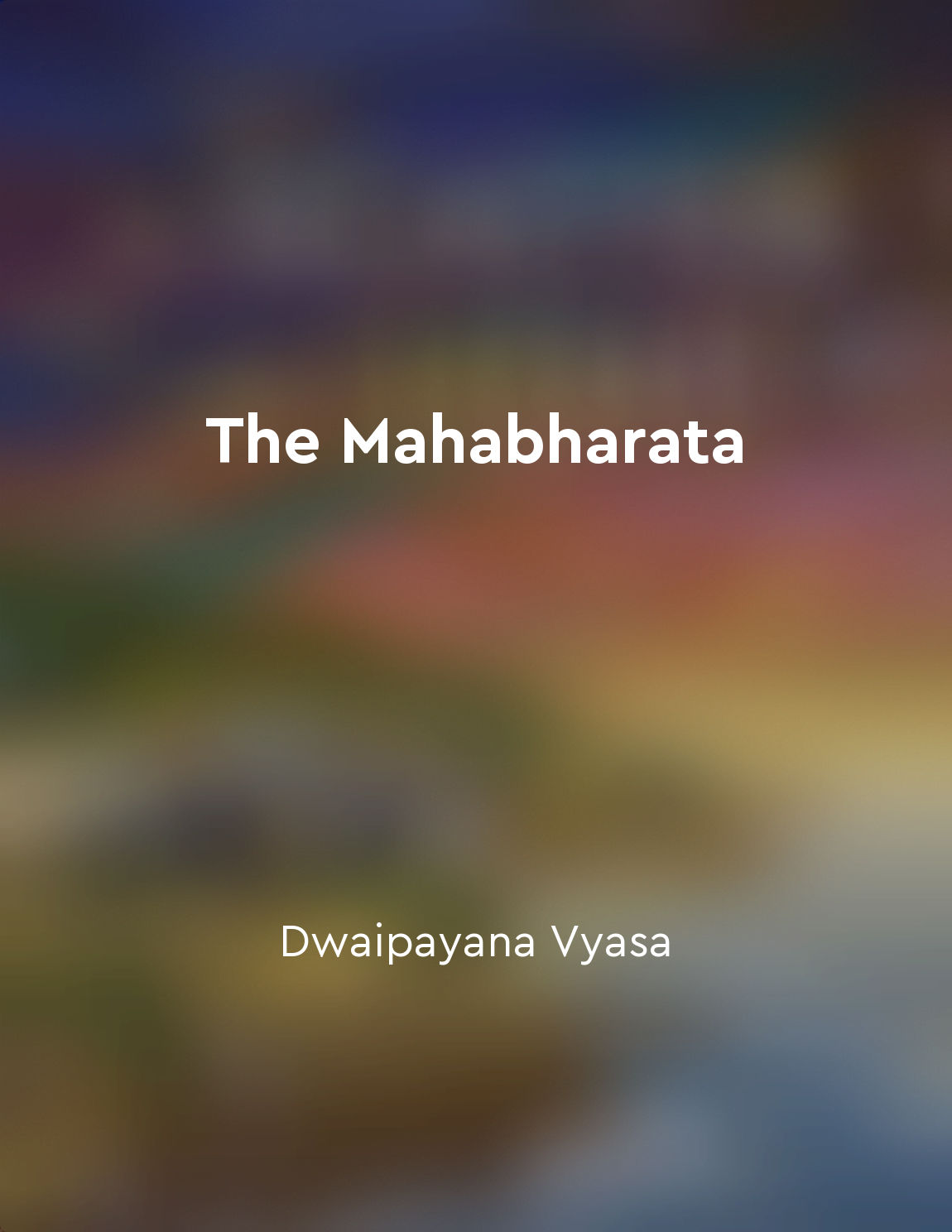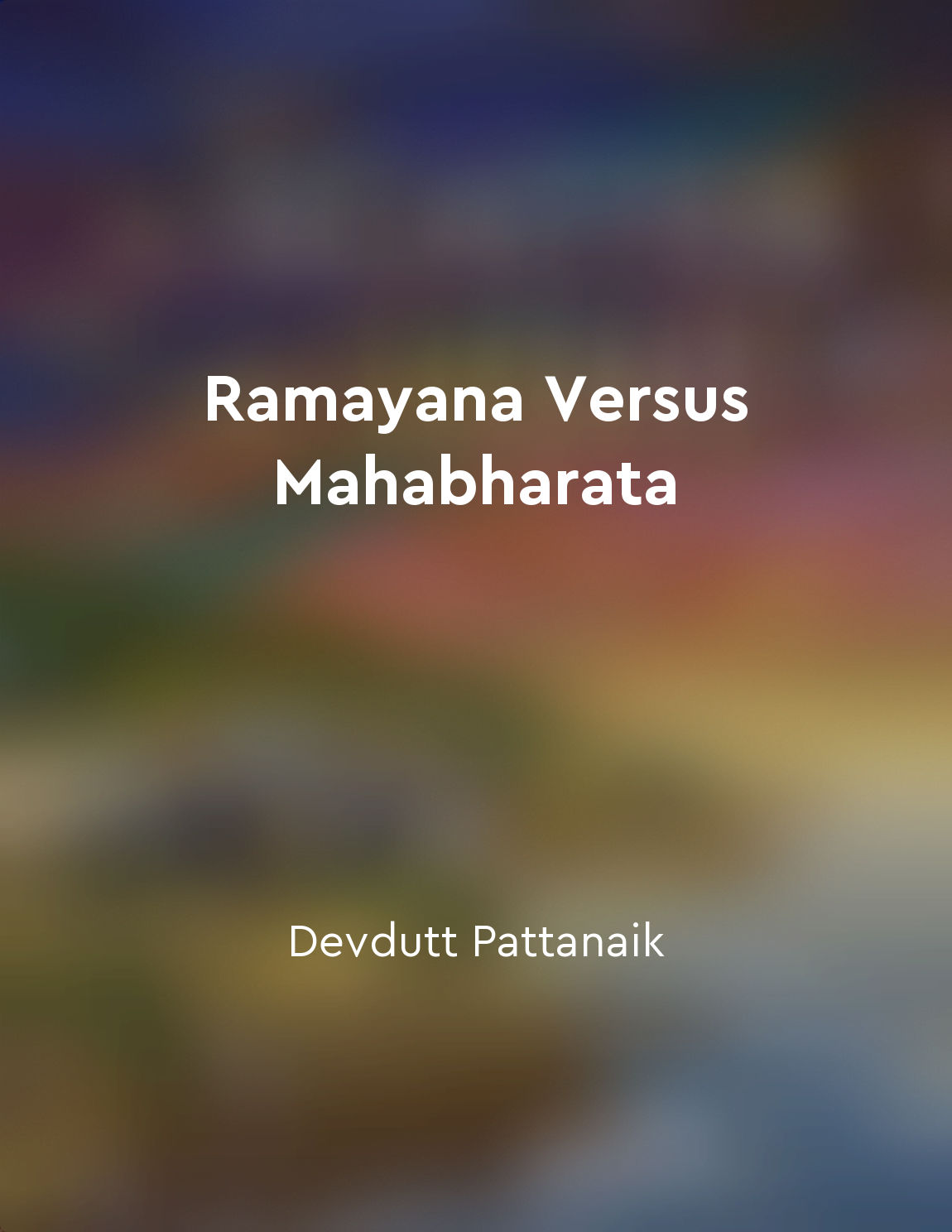Ramayana's Bharata is loyal, Mahabharata's Duryodhana is jealous from "summary" of Ramayana Versus Mahabharata by Devdutt Pattanaik
In the epic Ramayana, Bharata is portrayed as a loyal and devoted brother to Rama. When Rama is exiled to the forest, Bharata refuses to accept the throne that rightfully belongs to his elder brother. Instead, he goes to the forest to persuade Rama to return and rule Ayodhya. Bharata's actions are driven by a sense of duty, loyalty, and love for his brother, even at the cost of his own desires and ambitions. On the other hand, in the Mahabharata, Duryodhana is depicted as a character consumed by jealousy and ambition. His jealousy towards his cousins, the Pandavas, drives him to plot against them and ultimately leads to the great Kurukshetra war. Duryodhana's actions are driven by a deep-seated jealousy and a desire for power and control, even at the expense of relationships and righteousness. Bharata's loyalty to his brother Rama is unwavering, even in the face of adversity and temptation. His actions are guided by a sense of righteousness and duty towards his family and kingdom. Bharata's character exemplifies the virtues of loyalty, sacrifice, and selflessness. On the other hand, Duryodhana's jealousy clouds his judgment and leads him to make decisions that are driven by selfishness and ego. His actions ultimately lead to his downfall and the destruction of his kingdom. Duryodhana's character serves as a cautionary tale about the dangers of jealousy and ambition unchecked by moral values and ethics.- Righteousness, and selflessness in shaping one's destiny. While Bharata's loyalty ultimately leads to the restoration of dharma and harmony in the Ramayana, Duryodhana's jealousy and ambition pave the way for the destruction and chaos in the Mahabharata. The two characters serve as archetypes representing the choices individuals make in their lives - whether to be driven by loyalty and righteousness like Bharata or succumb to jealousy and selfishness like Duryodhana.
Similar Posts
Prince Rama
Prince Rama, the protagonist of the epic Ramayan, is considered an ideal man, embodying qualities such as righteousness, loyalt...
Harmony
The concept of harmony is a recurring theme in the epic tale of Ramayan. Harmony is not just the absence of conflict, but the p...
Defeat of Kauravas
The defeat of Kauravas in the Mahabharat is a pivotal moment in the epic tale. It marks the culmination of a long-standing riva...
Trade and agriculture were vital aspects of Vedic society
Trade and agriculture played crucial roles in the development of Vedic society. The Vedic people were primarily pastoralists an...
Abduction
One of the key events in the epic Ramayan is the abduction of Sita by the demon king Ravan. This abduction sets in motion a ser...
Hanuman's devotion to Rama
In the epic Ramayana, Hanuman's unwavering devotion to Rama shines brightly as a guiding light for all devotees. Hanuman, the m...
Spiritual journey
The concept of the spiritual journey in Ramayan is a central theme that runs through the epic. It is the journey of the soul to...
Hanuman's journey to Lanka
Hanuman, the mighty monkey warrior, embarked on a perilous journey to Lanka, the kingdom of the demon king Ravana. The purpose ...

The wheel of karma
The wheel of karma is a concept deeply woven into the fabric of existence, a fundamental truth that governs the cycles of life ...


